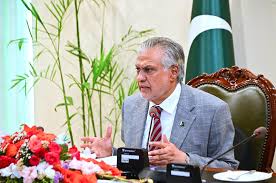ICC gives Italy 30 days to explain al-Masri case

Rome: The International Criminal Court (ICC) has requested Italy to respond within 30 days, following its failure to extradite the Libyan general accused of crimes against humanity, and also implicated in the mistreatment of migrants.
On February 18, the International Criminal Court (ICC) announced that Italy had 30 days, in which to respond to its request for explanation regarding the country’s failure to extradite the Libyan general Osama Najim al-Masri.
Al-Masri is accused by the ICC of crimes against humanity, and implicated in the mistreatment of migrants during his time in Libya.
The ICC formally notified Rome of the start of an official inquiry into what it considers Italy’s “non-compliance” in failing to transfer the Libyan general to The Hague. However, the Italian government’s response, expected in the form of a legal memorandum, remains uncertain.
The Ministry of Justice had already been working on a document highlighting a series of inconsistencies in the procedures surrounding the arrest warrant for the Libyan commander, meaning that Italy’s strategy, analysts believe, could still be undecided.
Whatever the document’s form, its content will undoubtedly touch on the issues already raised during Justice Minister Carlo Nordio’s parliamentary briefing on February 5. During that session, Nordio pointed to errors (and subsequent corrections) that, according to the government’s interpretation, effectively nullified the arrest request.
But this time, the form may matter more than the substance. Will the government comply by submitting a memorandum by March 17, as requested by the ICC? Or will it instead respond with its own request for clarification from the court, challenging the inconsistencies and revisions regarding the dates of the alleged offenses committed by al-Masri?
Additionally, the ICC has asked Rome to “submit observations regarding its failure to search and seize materials” in al-Masri’s possession, implying that items such as mobile phones, documents, and other belongings at the time of his arrest could have been crucial for the investigation.
This requirement was initially included in the arrest request and was reiterated in the latest notice sent to Italy. “On January 17, 2025,” the court document states, “the ICC was informed that al-Masri was within the Schengen area, in a country other than Italy. The Chamber then expedited its review […] and on January 18 issued an arrest warrant by majority vote. On the same day, the Chamber issued an order […] instructing the Registrar to send cooperation requests […] to seize any evidence or devices carried by the suspect that may contain relevant proof and to transmit such evidence to the Court.”
The issue has reignited debate in Parliament. Parties in opposition, like the Democratic Party, the Five Star Movement, and the Green and Left Alliance took the floor in the Chamber to demand that Minister Nordio provide the document he previously promised to share with lawmakers —specifically, “the comparative table of charges” that Nordio himself “had displayed” during his briefing.
“Either the minister keeps his word” and makes the documents available to Parliament, “or he sends a letter to the Speaker of the Chamber explaining why he is refusing to do so and apologizes to Parliament,” said Democratic Party MP Federico Fornaro. “Until that promise is fulfilled, we will raise this issue every single day,” he added.





